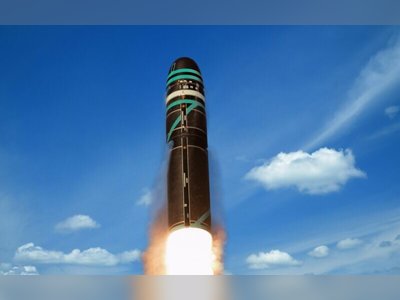Poland Green-Lights NATO Deployment in Response to Major Russian Drone Incursion
Polish President formally approves NATO forces’ presence under ‘Operation Eastern Sentry’ after airspace breach and invocation of Article 4
Poland’s President has officially authorised the deployment of NATO troops on Polish soil following a large-scale violation of its airspace by Russian drones.
The move is part of NATO’s newly declared “Operation Eastern Sentry,” which was activated after Poland invoked Article 4 of the North Atlantic Treaty.
Around the night of September 9-10, up to twenty-three unmanned aerial vehicles believed to originate in Russia crossed into Polish airspace.
Polish and allied forces responded by scrambling aircraft and activating air defence systems; at least four drones were shot down, most by Dutch F-35s.
Airspace over several Polish airports, including Warsaw International, Warsaw Modlin, Rzeszów-Jasionka, and Lublin, was temporarily closed during the incident.
Civilian damage was reported in at least one village where a drone debris struck a residential building, though there were no casualties.
Prime Minister Donald Tusk described the incursion as a “direct threat,” while Poland’s Deputy Prime Minister, Radosław Sikorski, asserted that the violation represented an unprecedented attack not only on Polish territory, but also on NATO and European Union space.
NATO Secretary General Mark Rutte condemned the violation as “absolutely irresponsible” and underlined that such actions are not isolated; he pledged that NATO will defend every inch of its territory.
A full assessment of the incident is underway.
Under Operation Eastern Sentry, NATO is deploying integrated air and ground systems to strengthen the alliance’s eastern flank.
Participants include Denmark, France, Germany, the United Kingdom, and other member states.
The joint force will involve fighter jets, helicopters, anti-aircraft missile batteries, advanced drone detection and counter-drone systems, and ground-based defences.
The operation is intended both as a deterrent against further violations and as a capacity to respond comprehensively to threats from Russian aerial activity.
Russia, in response, has launched hypersonic cruise missile drills together with Belarus, under the “Zapad 2025” exercises.
Moscow and Minsk maintain these exercises are defensive in nature and not directed specifically at NATO, though the timing has intensified regional concern over escalating tensions along NATO’s eastern frontier.
The move is part of NATO’s newly declared “Operation Eastern Sentry,” which was activated after Poland invoked Article 4 of the North Atlantic Treaty.
Around the night of September 9-10, up to twenty-three unmanned aerial vehicles believed to originate in Russia crossed into Polish airspace.
Polish and allied forces responded by scrambling aircraft and activating air defence systems; at least four drones were shot down, most by Dutch F-35s.
Airspace over several Polish airports, including Warsaw International, Warsaw Modlin, Rzeszów-Jasionka, and Lublin, was temporarily closed during the incident.
Civilian damage was reported in at least one village where a drone debris struck a residential building, though there were no casualties.
Prime Minister Donald Tusk described the incursion as a “direct threat,” while Poland’s Deputy Prime Minister, Radosław Sikorski, asserted that the violation represented an unprecedented attack not only on Polish territory, but also on NATO and European Union space.
NATO Secretary General Mark Rutte condemned the violation as “absolutely irresponsible” and underlined that such actions are not isolated; he pledged that NATO will defend every inch of its territory.
A full assessment of the incident is underway.
Under Operation Eastern Sentry, NATO is deploying integrated air and ground systems to strengthen the alliance’s eastern flank.
Participants include Denmark, France, Germany, the United Kingdom, and other member states.
The joint force will involve fighter jets, helicopters, anti-aircraft missile batteries, advanced drone detection and counter-drone systems, and ground-based defences.
The operation is intended both as a deterrent against further violations and as a capacity to respond comprehensively to threats from Russian aerial activity.
Russia, in response, has launched hypersonic cruise missile drills together with Belarus, under the “Zapad 2025” exercises.
Moscow and Minsk maintain these exercises are defensive in nature and not directed specifically at NATO, though the timing has intensified regional concern over escalating tensions along NATO’s eastern frontier.










